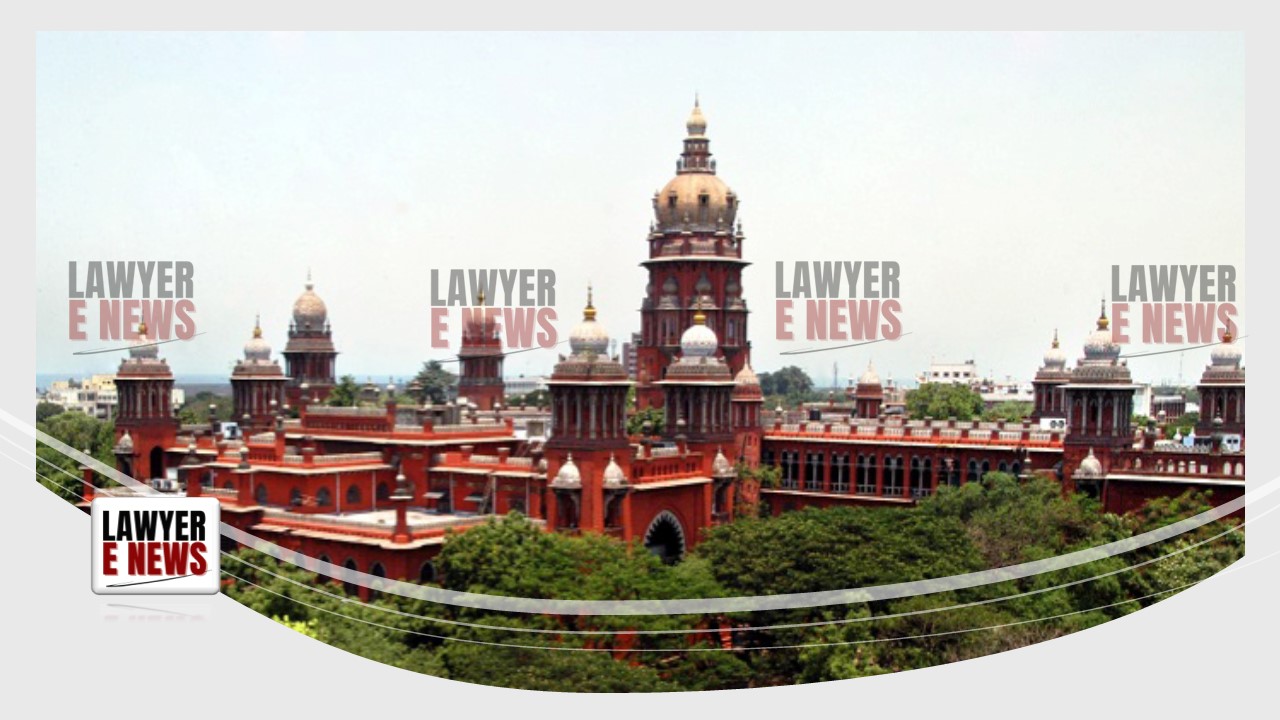-
by Admin
15 February 2026 2:36 AM



On September 10, 2024, the Madras High Court, presided over by Justice V. Lakshminarayanan, delivered a significant ruling in M/s Easy Ride Transports v. Regional Transport Authority, Tiruppur North Region, regarding the interpretation of Tamil Nadu’s special provisions for motor vehicle permit variations. The Court ruled that the Tamil Nadu Motor Vehicles (Special Provisions) Act, 1992, allows small operators to repeatedly seek route variations of up to 24 kilometers, despite the restrictions imposed by the general law under the Motor Vehicles Act, 1988. The court set aside the State Transport Appellate Tribunal’s decision that had previously denied the petitioner's variation application, thus allowing continued operations under the more favorable provisions of the 1992 Act.
The petitioner, M/s Easy Ride Transports, initially operated a stage carriage service between Tiruppur and Karumathampatti, and later applied for a route extension to Coimbatore in 1996. Although the Regional Transport Authority granted a partial extension to Lakshmi Mills, the petitioner's further attempts to extend the route to Coimbatore Gandhipuram bus stand were denied. This led to multiple rounds of litigation, including writ petitions and appeals, as the petitioner sought relief from the authorities' repeated denials based on the interpretation of the Motor Vehicles Act, 1988.
The core legal issue was whether the petitioner could seek repeated variations to its route under the Tamil Nadu Motor Vehicles (Special Provisions) Act, 1992, which governs small operators, or whether the general restrictions of the Motor Vehicles Act, 1988, particularly Section 80(3), applied. The petitioner argued that the special provisions of the Tamil Nadu Act 41 of 1992, which allows small operators to seek route variations up to 24 kilometers once a year, should prevail.
Justice Lakshminarayanan held that the Tamil Nadu Motor Vehicles (Special Provisions) Act, 1992, a special law that had received Presidential assent, supersedes the general law under the Motor Vehicles Act, 1988. The Court emphasized that Section 6(3) of the 1992 Act, combined with Rule 4 of the Tamil Nadu Motor Vehicles (Special Provisions) Rules, 1995, permits small operators to seek route variations of up to 24 kilometers each year. The judge clarified that this provision is not a one-time measure but can be invoked repeatedly, contradicting the State Transport Appellate Tribunal's interpretation.
The court further noted that the petitioner's application for variation, pending for 16 years, must be disposed of expeditiously by the Regional Transport Authority. The Court remitted the case back to the Authority, directing it to consider the application under the correct legal framework of the 1992 Act.
The Madras High Court's decision reinforced the precedence of special state legislation over the general law, providing a crucial interpretation of the Tamil Nadu Motor Vehicles (Special Provisions) Act, 1992. The ruling grants small operators the ability to repeatedly seek route variations under the 24-kilometer limit, thereby facilitating their operations in the state.
Date of Decision: September 10, 2024
M/s Easy Ride Transports v. Regional Transport Authority, Tiruppur North Region
